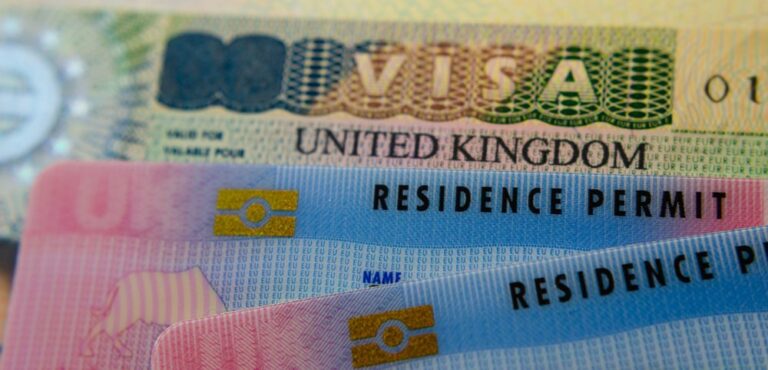Dual citizenship and asylum claims: an increasingly common challenge

26.06.2023
While multiple citizenship has been around for decades, globalisation and the recent rise of so-called “Citizenship by Investment” schemes – which enable individuals to acquire certain countries’ citizenship generally by making a significant investment of capital in the country – have meant it is becoming increasingly common for asylum seekers to hold more than one citizenship. Being a citizen of more than one country will almost always be a serious complicating factor in UK asylum claims, and is made all the more complicated by shortcomings in the Home Office guidance.
The position under the Refugee Convention
Article 1A(2) of the 1951 Refugee Convention sets out the familiar definition of a refugee; a key component of which is that the person has a well-founded fear of persecution in “the country of his nationality.” The Convention provides that in cases involving claims by applicants with more than one nationality, “the term ‘country of his nationality’ shall mean each of the countries of which he is a national.”
As confirmed by the United Nations High Commissioner for Refugees (‘UNHCR’), this provision intends to exclude from the Convention “all persons with dual or multiple nationality who can avail themselves of the protection of at least one of the countries of which they are nationals.” This is because “wherever available, national protection takes precedence over international protection.”
The starting point will therefore be whether an applicant fears persecution in every country of which they hold citizenship. But this will not be determinative. The Convention also states that an applicant may be entitled to refugee status where there is a “valid reason based on well-founded fear” of persecution for not availing themselves of the protection of another state where they hold citizenship and do not fear persecution.
So what will constitute a valid reason?
One is rooted in the Convention’s core principle of non-refoulement. In KK and others (Nationality: North Korea) [2011] UKUT 92 (IAC), the Upper Tribunal held that where the result of the applicant availing themselves of the protection of a state whose citizenship they hold, where they do not fear persecution, is that “he will find himself (for one reason or another) returned to the country in which he fears persecution,” that “would appear” to constitute a valid reason based on well-founded fear for not availing himself of that country’s protection. So, where there is a risk of an applicant being transferred from a non-persecutory state of citizenship, either by state or non-state actors, to a persecutory state of citizenship (i.e. there is a risk of being directly or indirectly refouled), the Convention will provide protection. This may arise, for example, where extradition laws operating in a non-persecutory state would fail to prevent an extradition request by a persecutory state.
Another valid reason is where the applicant’s particular type of nationality of a non-persecutory state does not entitle them to the protection normally granted to nationals[TR1] [OO2] , although according to UNHCR, “as a rule, there should have been a request for, and a refusal of, protection before it can be established that a given nationality is ineffective.” If meaningful protection is available in a non-persecutory state, then refugee status will not be recognised.
The Immigration Rules and approach taken by the Home Office
Paragraph 339J(v) of the Immigration Rules provide that the Secretary of State must consider whether an applicant “could reasonably be expected to avail themselves of the protection of another country where they could assert citizenship.”
The Home Office’s recently updated caseworker guidance on Assessing Credibility and Refugee Status, published 28 June 2022, provides the following guidance on the approach to be taken to claims made by applicants who hold more than one nationality:
…even though a claimant may have a well-founded fear of persecution in one country of nationality, they will not qualify for refugee status if they are also nationals of another country and they do not have a well-founded fear of persecution in that country. This paragraph does not apply to claimants who have leave, but not citizenship, in another country as claimants in that situation are not considered to be dual nationals.”
The guidance is out of step with the Convention, failing to capture the more nuanced position outlined above, which requires caseworkers to consider the existence of other valid reasons based on well-founded fear. The guidance risks being applied rigidly by Home Office caseworkers to the detriment of those who ought to succeed under the Convention, so it will be extremely important to make clear submissions on the existence of alternative “valid reasons.”
Disputed and asserted citizenship
There are rare cases where an applicant’s citizenship – or their ability to “assert” citizenship – is disputed. For example, the Home Office may contend that an applicant is a citizen of a certain country based on what is known about their background and family history.
The correct approach in these cases was settled by the Upper Tribunal in MA and others (Disputed nationality) Ethiopia [2008] UKIAT 00032, which confirmed that the first question to be answered is whether the person is de jure (i.e. by right, under the law) a national of a given state, based on an examination of nationality laws, expert evidence, testimony, agreement between the parties and Foreign Office letters. If answered in the affirmative, the second question is whether it is “reasonably likely” that the authorities of that state will in fact accept that applicant is one of its own nationals. If yes, then the considerations set out above regarding the preclusion of refugee status will need to be addressed.
A reminder about admissibility issues for those with EU citizenship
If one of the citizenships held by an applicant is of an EU country, admissibility will be an issue before the Home Office even comes to consider the substance of the asylum claim. The Immigration Rules require such applicants to demonstrate “exceptional circumstances” for the application to be admitted for full consideration. While not insurmountable with a well-constructed claim and supporting evidence, in practice the majority of claims brought by applicants with EU citizenship will be declared inadmissible, which is then only challengeable by way of judicial review.
Appeals and certification risks
For those whose claims are admitted for substantive consideration, it will always be important to gather evidence and make submissions about why the Refugee Convention provides protection despite holding multiple citizenships. While a refusal will attract a right of appeal, where the Home Office decides to refuse a claim on the basis that the applicant is a national of another state where there is no well-founded fear of persecution, there is a good chance that the claim will be certified as clearly unfounded, which has the important consequence of removing the possibility of appealing while still in the UK. Again, the only challenge to a certification decision is judicial review.
We have successful experience the following asylum cases
- Russian with Antigua passport
- KZ with St kitts
- Russian with Israel
- Ukrainian with Israel
- Russian with Cyprus
- Russian with Bulgarian
For this highly specialist area of law book consultation with our partner Ruslan Kosarenko.







